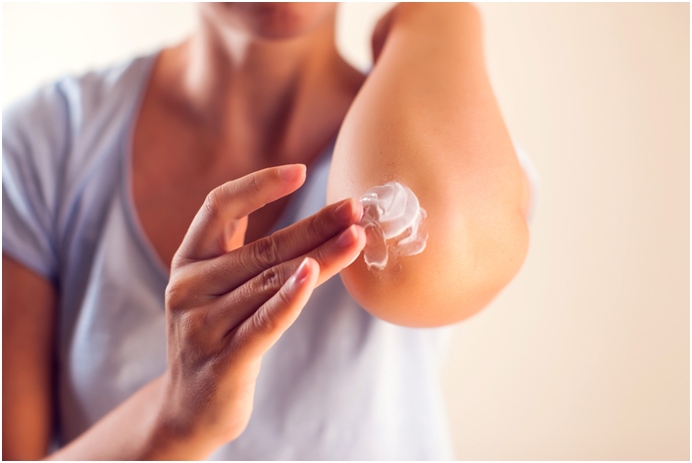It seems probiotics are showing up everywhere these days. We also hear a lot about “microbiomes” and how the health of our microbiome can affect us. A microbiome is basically the collection of all the other living things that exist in and on our bodies.
A person’s individual microbiome is made up of all the bacteria (they’re not all bad!), viruses, fungi and parasites (don’t freak out; they’re not all bad, either) that live in our guts and on our skin. Probiotic skin care products can improve the microbiome of your skin.
The term probiotics refers to the living strains of microbes that we add to our systems to improve the health of a particular microbiome. Confused? Let’s look closer at these tiny critters and how they can help our skin.
Table of Contents
More About the Microbiome
As stated above, the microbiome is a person’s unique collection of living organisms that live on and in their body. It’s a busy and complicated invisible world of trillions of organisms leading interconnected lives.
Each person’s collection of microorganisms is unique to them based on their DNA, as well as their exposure to organisms from the process of being born and onward into every aspect of their lives. All microbiomes consist of organisms that can be both helpful and harmful, but in a healthy system they will keep each other in check. It is when the system gets out of balance that overgrowths can occur.
Probiotics are particular types of organisms, usually bacteria or yeasts that naturally occur in the microbiome, but they can also be added intentionally to help restore balance to the system. We probably know about how eating yogurt or taking probiotic supplements can help our gut feel and work better. But how do they help in skincare?
According to research done by the National Institutes of Health (NIH), probiotics as a part of skin care are showing promise in a variety of skin conditions. Let’s look at some of them.
Improvement of Atopic Dermatitis
Atopic dermatitis is a skin condition that causes the skin to become itchy and red. Also called eczema, it tends to occur in patches that can appear thickened and cracked and which tend to appear on hands and feet, around the ankles and wrists or on the insides of knees and elbows. It also often affects the neck and upper chest, as well as the eyelids.
The research done by the NIH found that use of probiotics for treatment of atopic dermatitis reduced inflammation and resulted in significant improvement of the condition.

Probiotics in Wound Healing
Wounds naturally result in a change to the local microbiome due to the inflammatory processes kicked off by the immune system to aid in healing. The research by the NIH found that use of probiotics reduced the presence of harmful bacteria and aided in healing.
Since this process occurs in wounds of all sizes, probiotics may be useful for skin irritations caused by shaving, abrasion from mask wearing and other sources of broken or damaged skin.
Improvement in Acne
Acne is one of the most common skin conditions, and it causes distress for many people suffering with it. The research by the NIH found that interactions between the microbes of the skin interacting with the immune system were key in the occurrence of acne symptoms.
For many years, it’s been understood that the overgrowth of certain microbes is at the root of acne. As far back as 1912, research was being done on “bacteriotherapy” as a treatment for acne. Recent research continues to find that probiotic treatment can help restore a healthier microbiome as well as reduce the redness and inflammation associated with acne.
Promising Help for Psoriasis
Psoriasis is a common skin disease that causes cyclical flare-ups of red, itchy and scaly patches of skin. It most commonly occurs in locations such as knees and elbows, and also the trunk of the body as well as the scalp.
Though psoriasis is a chronic and typically genetic disease, there has been improvement documented from the internal use of probiotics. The NIH study indicated that topical use of probiotics may also be beneficial and that it should be studied further.
Protecting Against Damage from UV Rays
We all know the damage that can be caused by overexposure to ultraviolet radiation, and the use of sunscreens is one of the first lines of defense against that damage. The NIH research has found that use of probiotics on the skin may also help protect the skin from damage from UV rays, as well as the normal aging process.

According to research, the topical use of probiotics on the skin increased collagen production as well as reduced the appearance of dark spots caused by UV damage. It also reduced the depth and severity of skin wrinkles on the face.
While research has shown the exciting benefit of probiotics in the care of your skin, you should always make sure to check the active ingredients in skin care products you use. This will assure that you are using only the highest quality products for your skin.

